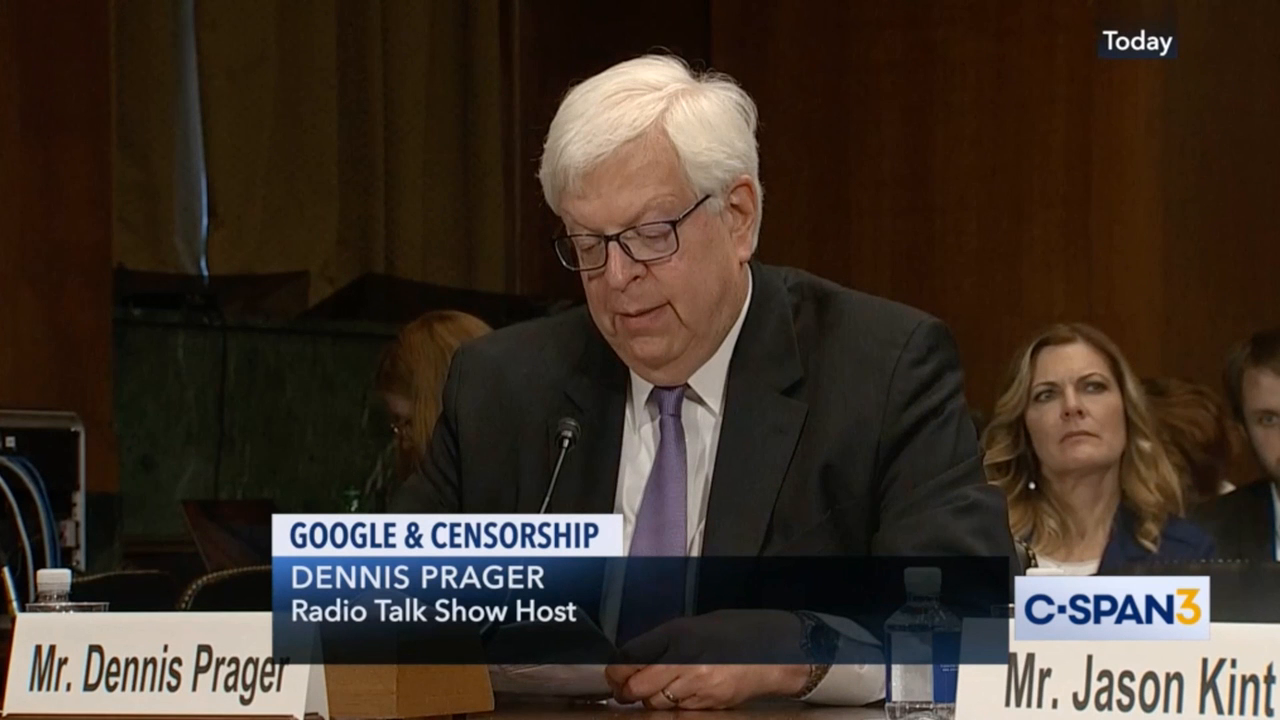Kerby Anderson
Should the government step in to make sure big tech companies respect free speech? Dennis Prager argues, “Don’t Let Google Get Away with Censorship.” He understands the reluctance many conservatives have about government regulation. So, he tries to make the case for intervention.
He does know something about censorship. So far, YouTube has placed 56 of his videos on their restricted list. These videos include prominent lawyers, politicians, and researchers. Many of them have been on my radio program and aren’t the sort of people to say something that would deserve restriction.
He has asked Google and YouTube for an explanation. The only time an explanation was given was in a Senate hearing. The “Ten Commandments” video was restricted, according to a Google representative, because the video referred to “murder.” I’m not joking. Apparently, Dennis Prager was joking when he then offered to release a Google-friendly video on “The Nine Commandments.”
The big tech companies want to have it both ways. The 1996 Communications Decency Act provided them with immunity from legal action because they presented themselves as a neutral platform. But they also censor and restrict content and therefore are acting like publishers.
Yes, they are private companies and there is good reason to debate whether government should step in even in the midst of obvious censorship taking place. Dennis Prager, writing in the Wall Street Journal, asks this important question.
“If the four major US airlines announced they would not allow passengers carrying The Wall Street Journal to travel to some American cities, would any conservatives or libertarians defend the airlines’ right, as private companies, to do so?”
That’s a good question and one that members of Congress need to consider, especially in this election year.
 Listen Online
Listen Online Watch Online
Watch Online Find a Station in Your Area
Find a Station in Your Area










 Listen Now
Listen Now Watch Online
Watch Online
